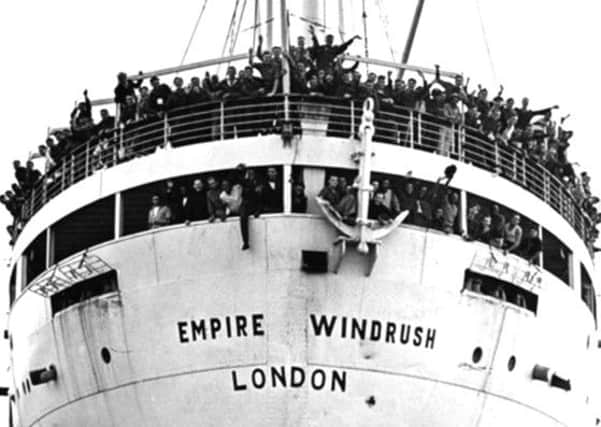How Britain once welcomed foreigners as our saviours


“NEVER in the field of human conflict was so much owed by so many to so few”.
These famous words were, of course, uttered by Winston Churchill in a speech to Parliament in August 1940, as the fight for freedom raged in the skies overhead.
Advertisement
Hide AdAdvertisement
Hide AdThe story of the Battle of Britain has become ingrained in our national consciousness and today the brave men, and women, who helped repel the Luftwaffe in the country’s hour of need are rightly revered as national heroes.
Many of them, though, weren’t actually British. Fighter Command was in fact a cosmopolitan mix with Poles, Czechs, Belgians and Free French all swelling the ranks along with those from Commonwealth and other nations that answered the call for pilots.
It is often assumed that Britain’s multicultural roots date back to the 1950s and the initial wave of migrants from the Commonwealth. But before then, during the Second World War, huge numbers of refugees, war-workers and military personnel, flooded into the country chiefly from the British Empire, Europe and the United States.
It’s a lesser known aspect of our social history but one that Wendy Webster, an historian at the University of Huddersfield, hopes to illuminate. Professor Webster has been awarded a £110,000 grant from the Arts and Humanities Research Council to shed light on the wartime experiences of those who came to Britain during the 1940s.
Advertisement
Hide AdAdvertisement
Hide AdProfessor Webster is trawling through memoirs and other personal accounts from the war and its aftermath to piece together the disparate strands of this story.
She has already discovered that while Britons usually welcomed foreign servicemen, their attitude often turned frosty when the war was over. “In the post-war period, the history of diversity was basically forgotten,” she says.
“For example, when the Empire Windrush arrived in 1948, it carried people from the West Indies who were largely returning to a country where they had been stationed during the war. But they were much less welcome on their return when people were aggressive towards them and said they shouldn’t be here.”
Professor Webster’s project is called Mixing It and she has been joined by the historian Dr Janette Martin, who will act as research assistant and conduct interviews with people who have personal memories of the 1940s and also younger generations about the experiences of their families.
Advertisement
Hide AdAdvertisement
Hide AdHer research will feed into a new book and an Imperial War Museum (IWM) exhibition – due to open next September in Manchester – to mark the 70th anniversary of the ending of the war.
It will examine the experiences of groups such as the exiled Belgian fishing fleet, which was dispersed around England and Wales, plus large numbers of Poles in Scotland, Czechs in Wales and US servicemen in Ulster.
There were many other nationalities in the UK during the war including Dutch, Norwegians, Australians, New Zealanders, Indians, West Indians, and a massive body of American soldiers. “Black GIs were often liked. They were thought to be more courteous than their white counterparts,” she says.
“Reactions to foreigners were so varied. There was a moment of real hostility in 1940 when invasion looked imminent, because of fears about spies and fifth columnists. And when Italy declared war there were anti-Italian riots in many British towns and cities.”
Advertisement
Hide AdAdvertisement
Hide AdAlthough this wave of fear did pass and there wasn’t a repeat of such incidents, Professor Webster says it highlights the feelings of uncertainty at the time. “People in uniform, in particular, were often welcomed and valued. But there was less sympathy for civilian refugees.”